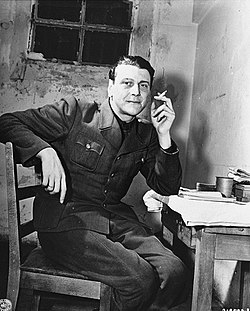Allegations
Victor's justice is alleged to have occurred throughout history.
A well-known ancient example is the Siege of Plataea in 429–427 BC, during the Peloponnesian War. The town of Plataea, a staunch ally of Athens, steadfastly endured a prolonged siege by the Spartans and their allies, finally surrendering to the Spartans when all supplies they had were exhausted and no hope of relief remained. They had trusted the Spartans to a fair trial, as the Spartans had promised to "judge them all fairly", and that "only the guilty should be punished" if they yielded. Yet, when the Plataean prisoners were brought before the judges, no trial was held and they could offer no real defense. The Spartans simply asked each of the prisoners if they had done the Spartans and allies any service in the war, to which the prisoners ultimately had no choice but to answer "no". It was well known to anybody involved that during the entire war the Plataeans had fought on the Athenian side, against the Spartans, that being the duly declared policy of their city-state. Upon the Plataeans giving that negative answer, they were put to death one by one – over 200 of them. Thucydides clearly considered this an unfair judicial procedure.
Documented allegations of victor's justice became especially prevalent since the 19th century.

James Madison Page, a veteran of the Union army during the American Civil War, presented a stark and detailed example of victor's justice in his 1908 book The True Story of Andersonville Prison, subtitled "A Defense of Major Henry Wirz". [5] After describing his months as a prisoner of war of the Confederacy, Page recounts the imprisonment and trial of Captain Henry Wirz, the only commandant of Camp Sumter prisoner of war camp near Andersonville, Georgia. The Confederacy held approximately 45,000 Union prisoners at Camp Sumter from February 1864 to April 1865, during which nearly 13,000 died due to the prison's horrific conditions. Wirz became known as "The Demon of Andersonville" in the victorious Union, and was one of only two Confederates convicted of war crimes for their actions during the American Civil War. Wirz was found guilty by a war crimes tribunal and publicly executed in Washington, D.C., on November 10, 1865. Some have questioned the charges against Wirz, his personal responsibility for the conditions at Camp Sumter, and the fairness of his post-war trial. In 1980, historian Morgan D. Peoples referred to Wirz as a "scapegoat" and his conviction remains controversial. [6] [7]
The war crimes trials following World War II were later observed to feature many of the phenomena and issues seen in Page's account of Wirz's trial, conviction, sentencing, and execution. The Nuremberg Criminal Court for war crimes (and subsidiary courts like the Dachau International Military Tribunal) prosecuted only Axis nationals or collaborators for war crimes and did not prosecute Allied war crimes.

By the mid-twentieth century, the armed forces of developed nations commonly issued their soldiers detailed written guidance on the customs and international treaty obligations that comprise the laws of war. For example, at the trial of SS- Obersturmbannführer Otto Skorzeny, his defense was based in part on the Field Manual published by the War Department of the United States Army in 1940, as well as on the American Soldiers' Handbook. [8] Prosecution for war crimes therefore normally falls under the jurisdiction of the courts-martial of an offender's own military. When members of the Allied armed forces broke their military codes, they could face charges, as for example the Dachau massacre or the Biscari massacre trials. The unconditional surrender of the Axis powers was unusual and led directly to the formation of the international tribunals. International wars usually end conditionally, and the treatment of suspected war criminals makes up part of the peace treaty. In most cases those who are not prisoners of war are tried under their own judicial systems if they are suspected of committing war crimes, as happened at the end of WWII in Finland, when the Allied Control Commission provided a list of occurrences of war crimes and crimes against peace, and the investigation and judgment of these cases were left to Finnish courts according to Finnish law. However, an ex post facto law had to be instated for those cases, as the Finnish Criminal Act did not cover responsibility for politics resulting in a war. In restricting the international tribunal to trying suspected Axis war crimes, the Allies were acting within normal international law.
The Reunification of Germany in October 1990 saw the German Democratic Republic (East Germany) absorbed into the Federal Republic of Germany (West Germany) to form the modern unified country of Germany. Reunification saw numerous East German officials charged with crimes by German courts that were direct continuations of West German courts, which some considered to be victor's justice. Many low-ranking members of the Border Troops of the German Democratic Republic were charged with crimes related to Republikflucht , with an estimated 300 to 400 deaths at the Berlin Wall and Inner German border. These border guards, known as Todesschützen ("death shooters"), were often convicted despite arguing they were following Schießbefehl ("order to fire") from superiors which instructed guards to shoot escapees that ignored two warnings to stop. The German courts argued East German border laws were so fundamentally in conflict with the International Covenant on Civil and Political Rights, which East Germany had signed and ratified, that they were not law at all but formalized injustice, and thus the soldiers ought to have disobeyed their commanding officers. [9]